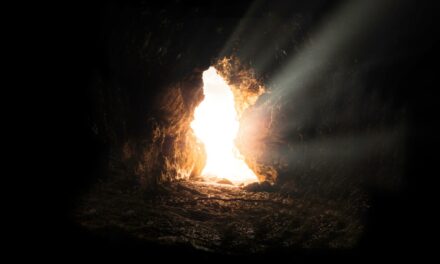Genesis 17:1–14: The Circumcision of Abraham
Introduction
So far, God has clearly communicated his election of Abram. In his very first words to Abram, Yahweh declared his intentions to make Abram into a great nation, to bless him, and to make his name great in order for Abram to be a blessing to the world, so that in Abram all the families of the earth will be blessed (Gen. 12:2–3). How exactly, though, do the blessings of Yahweh’s gracious calling and election of Abram extend to all the families of the earth? What rightful claim to these blessings does anyone other than Abram have to the blessings that Yahweh promised to Abram?
In some ways, this is the nagging question behind the sin of Abram and Sarai with Hagar. Sarai recognized that Yahweh had promised to give biological offspring to Abram (Gen. 15:4), but she did not understand that she must personally conceive that offspring (Gen. 16:2). Even Hagar fled from the house of Abram because she did not understand her own new connection to Abram’s promises until Yahweh clarified his intentions to include her and Ishmael in some of the blessings reserved for Abram (Gen. 16:10–12). Moving forward, one of the key questions that Yahweh must clarify for everyone in the world is this: How do I know whether the promises for Abram in any way extend to me? Indeed, after his grievous sin with Hagar, even Abram may be wondering whether he still has a rightful claim to Yahweh’s promises.
For this reason, Yahweh now ratifies the covenant that he made with Abram in Genesis 15. That is, Yahweh confirms and authenticates not only the trustworthiness of his promises, but also the rightfulness of his people’s claim to those promises. By the end of Genesis 17, Yahweh will have clarified the difference between those who have a rightful claim to his covenant promises, and those who do not. To make this difference clear, Yahweh now gives a covenant sign as the ratification of his covenant promises. That is, all those who possess the sign of the covenant know that they may rightfully lay hold of the blessings of the covenant. Or, put another way: God gives covenant signs to ratify our claim to his covenant promises.
Discussion Questions
1. What does it mean to “walk before” God? What are the practical implications of recognizing that we live our entire lives before the face of God? How does this affect how we listen to his word? How does this transform the way we pray? How does this influence the way we see other people? What areas in your walk are the furthest from “blamelessness”?
2. What does God promise to do in his covenant promises to us? Why is it important to recognize the cosmic, whole-creation scope of his plan for redemption? How does it shift our understanding of salvation when we recognize that God wants to dwell with us forever in a new heavens and a new earth? How are these promises fulfilled in Christ?
3. Why did God formerly command that his covenant people receive the sign and seal of circumcision? What does circumcision tell us about our own fallen condition? How does circumcision reveal Christ to us? Why is it important to recognize circumcision as God’s everlasting covenant, and yet to also see that the practice itself is obsolete?
4. Why does God give covenant signs? What are the signs of the new covenant? How do they differ from the old covenant signs? How do covenant signs ratify our claim to God’s covenant promises? What would we lose if we did not have covenant signs? Why should the children of believers receive circumcision (formerly) and baptism (now)?




